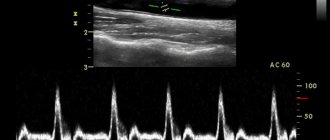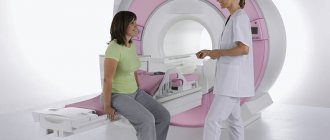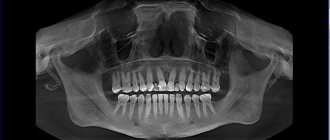Content
- Ultrasound examinations of the brain
- Ultrasound of the hip joints
- Abdominal ultrasound
- Ultrasound of the heart
- Audiological screening
- Pediatrician
In the first month, the baby needs regular monitoring; at this time, the slightest developmental disorders can be identified and measures can be taken to eliminate them. The day after discharge, the baby is visited by the local pediatrician and a visiting nurse from the outpatient department. During the examination, the specialist measures height, weight, head circumference, and assesses weight gain. The doctor examines how the navel is healing and whether care is being carried out correctly. The specialist informs the mother which doctors are examined per month and invites her to an appointment for a medical examination when she reaches the age of one month.
Genetic analysis during pregnancy
Carrying out genetic analysis during pregnancy will allow future parents to make sure that the fetus is developing correctly. The test will reveal the presence or absence of genetic diseases in the baby.
By the way, if you conduct a genetic study while planning a pregnancy, you can avoid many problems with the health and development of the child.
DNA test for embryo
Genetic analysis of the embryo is also carried out during IVF, even before the embryo is transferred into the uterine cavity. This helps to identify hereditary diseases.
Surveys
At the age of one month, the baby is shown the following examinations and procedures:
- Ultrasound of the brain;
- Ultrasound of the hip joints;
- Ultrasound of the abdominal cavity;
- Ultrasound of the heart;
- audiological screening.
Early diagnosis of pathologies allows you to completely cope with the problem or carry out correction. It is advisable to undergo the procedures before the first appointment with the pediatrician, so that the doctor can get a complete picture of the child’s condition.
Ultrasound of the brain
Ultrasound is prescribed for children over 1 month of age to identify possible abnormalities in the development of the nervous system. Ultrasound examination is relevant:
- for babies born prematurely;
- if complications arise during childbirth;
- with a low Apgar score in a child;
- if hyper- or hypotonicity of muscles is observed;
- with delayed physical or neuropsychic development.
Ultrasound of the hip joints
The study reveals pathological disorders, dysplasia, and congenital dislocations of the hip joints. Treatment of diseases is effective in the first year of life, until the baby starts walking. When diagnosing problems, the doctor gives recommendations, refers to massage and the necessary restorative procedures.
Abdominal ultrasound
An examination is prescribed for all one-month-old babies to identify congenital pathologies. During the planned procedure, the suitability of the internal organs for the child’s age is assessed. There is a scale for the ratio of age to the size of internal organs, which is followed when assessing development. The examination allows you to see signs of deviations from the norm and take timely measures.
Ultrasound of the heart
An ultrasound examination is prescribed from 1 to 1.5 months. If there are suspicions of defects and abnormal development, the procedure is performed in the first days of life. Ultrasound is absolutely safe for the baby and allows you to assess the development of the cardiovascular system. Echocardiography has no contraindications.
Audiological screening
The examination is aimed at identifying possible deviations in the development of hearing and speech organs. Thanks to modern detection, problems can be identified in the early stages, when treatment is most effective. The procedure is carried out for children up to 3 months inclusive, if it has not been completed previously. When checking, the latest diagnostic methods are used.
Newborn genetic screening
Recently, technologies in the field of genetics are developing so quickly that not only gene therapy for most diseases is just around the corner, but also the possibility of studying the genome of a specific living person.
On the one hand, this will make it possible to foresee the development of certain diseases in early childhood, long before the first signs of pathology appear. On the other hand, is it necessary to do this? Does the patient really need this? How necessary is it to study the genome of a newborn if there is no visible indication for it?
Ethics in medicine
First of all, if we are talking about ethics, we need to understand what ethics is in relation to medicine. Its basic principles were formulated a long time ago by Hippocrates, an ancient Greek scientist who is called the father of medicine. By taking the Hippocratic Oath, the doctor promises not to harm the patient, undertakes to help him and put his interests in the aspect of recovery above all else. Doctors are still guided by these and some other principles to this day, regardless of their specialty.
Read also: Why donate cord blood
Geneticists, like other medical specialists, work in the interests of the patient, and if this is a newborn, then it is his interests that should come to the fore. However, a newly born person cannot speak on his own behalf; his parents do this for him, often complementing or even replacing the child’s interests with their own.
Most likely, fearing for his life and health, they will advocate for complete genetic screening of their son or daughter in any case - so that they know what they and the child will face in life. But how necessary is this?
No screening required
This raises a complex question that is causing heated debate among doctors and scientists. Yes, technology now makes it possible to study the genome, at least partially. Yes, the information obtained in this way can be useful both for the child himself and for his parents (there is no point in considering a newborn separately from the people with whom he is in close contact). Yes, in some cases, genetic data will help, if not prevent the development of the disease, then at least slow it down. Some experts think so.
Other experts object: complete genome sequencing will provide geneticists with a huge amount of data, from which it will be extremely difficult to isolate the truly significant ones. Some part of the information will be completely useless, and it is not a fact that important information will not be lost in this part. In addition, money will be spent on obtaining the above useless information, which could be spent on things that are more necessary for the same newborns, in particular, to combat postpartum depression in their mothers.
Another important point is the relevance of the data obtained here and now, the ability to transform the information received into actions to prevent a particular misfortune. It is absolutely not necessary that such actions can be taken immediately after birth, which means months and years of waiting, stress, anxiety and other mental problems, which, as has been repeatedly proven, affect the well-being of the child.
Experts' opinion
Scientists from the Hastings Center (a bioethics research institute located in the United States) and the University of California have been conducting research in the field of “widespread” genetic screening of newborns for 4 years. They said that genomic research is a powerful tool, but the data it provides is still not fully understood and has not been proven to contribute to people's health (except in specific situations).
In their report entitled “The Ethics of Sequencing Newborns: Recommendations and Reflections,” they noted that a targeted study of newborns at risk would be much more effective in all respects, and that total screening of the entire population is overkill. Parents, according to scientists, should be dissuaded from genome research if their child does not have indications for this (i.e., suspicion of any disease), since the conflicting information received will provoke stress and force people to spend money on unnecessary examinations.
Similar results were previously obtained by other scientists (also from the USA). In 2014, an article “Addressing the ethical challenges in genetic testing and sequencing of children” was published, in which the authors pointed out that screening of newborns requires prerequisites - any symptoms that indicate the likelihood of the existence of a particular disease. Otherwise, you should refrain from testing at least in childhood - the child will grow up and figure it out on his own.
Ksenia Yakushina
Photo depositphotos.com
Routine examinations of the child at 1 month
After patronage, when the baby reaches the age of 1 month, it is necessary to come for a medical examination of the baby to specialists. A healthy child needs to visit a pediatrician, neurologist, surgeon, orthopedist and ophthalmologist. If there are pathologies, a list of specialists is compiled individually.
What to bring to your appointment:
- documents (vaccination certificate, policy, SNILS);
- replacement diapers, 2 diapers, wet wipes;
- toys, spare pacifier;
- spare clothes;
- a notebook with questions for the doctor.
Pediatrician
During the first visit, the doctor will weigh the baby, measure height, conduct an examination and evaluate physical and neuropsychic development. The doctor will ask the mother about the child’s developmental characteristics and give recommendations for care. It is necessary to draw the doctor's attention to any shudders, twitchings and convulsions.
The doctor will measure the circumference of the head and chest, examine the fontanelles, and check the weight gain, which indicates proper development. The mother will be asked to talk about the baby’s skills. By one month, the child can hold objects in his field of vision, follows a toy, turning his head slightly, responds to a voice, briefly raises his head, and smiles. If the child is healthy, he is sent for a second vaccination against hepatitis B (the first is given in the maternity hospital).
Neurologist
To assess neuropsychic and mental development, you must visit a neurologist at the clinic. The doctor checks for the presence of innate reflexes and evaluates muscle tone. If there is increased or decreased tone, a massage is prescribed. The doctor examines the results of an ultrasound scan of the brain and evaluates the baby’s skills and abilities.
Surgeon
The doctor evaluates reflex development, examines the navel, diagnoses or excludes inguinal and umbilical hernias, and checks for the presence of hypo- and hypertonicity of the muscles. In boys, the external genitalia are examined to exclude various pathologies: dropsy, hypospadias, cryptorchidism. The doctor may detect lymphangioma, hemangioma, and vascular lesions. If necessary, a therapeutic massage is prescribed and recommendations are given on which muscles to pay attention to.
Orthopedist
The specialist evaluates the development of bones and muscles. Upon examination, a doctor can diagnose congenital dislocation of the hip joint, clubfoot, and joint dysplasia. The orthopedist, examining the child, actively flexes and extends the limbs and performs many manipulations to determine the condition of the musculoskeletal system.
To eliminate risks, a routine ultrasound of the hip joint is performed, the results of which are reviewed by the doctor at the appointment and determines the exact picture of the baby’s condition. Most pathologies are successfully treated up to 1 year, until the child begins to walk.
Descriptions and main objectives of the study
“Genes are the material that contains all the information about an organism. If any disturbances occur in it, first of all, they occur in the structure of the genes. This is especially true for hereditary diseases,” comments pediatrician Kristina Kusochkova.
What benefits does genetic analysis provide and why does a child need it? To find out about the tendency to hereditary diseases, sensitivity to any medications and products, find out what type of physical activity, daily routine and type of nutrition is suitable for a particular child - all this helps to determine the child’s DNA test. The study identifies all risks and health features. A DNA aptitude test is also carried out. The gender of the child does not matter.
Why else is it worth conducting a genetic test for a child? The result you get will remain with the baby for many years, because genes do not change. That is, by doing a DNA test once, you receive important information about the child’s health for the rest of his life. He will be able to use the data obtained as an adult, and the DNA test will provide a lifelong contribution to his health. Mothers and fathers generally understand the determining role that genes play in the lives of their children.

© MyGenetics










